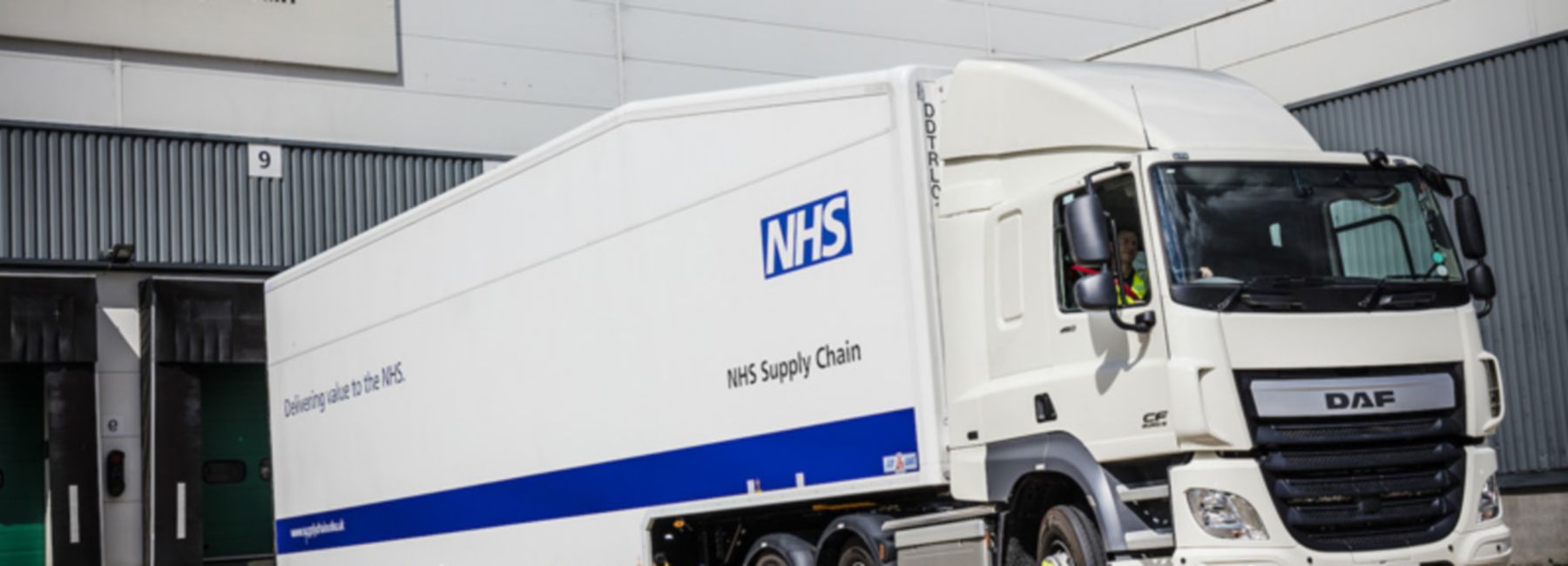NHS Supply Chain manages the sourcing, delivery and supply of healthcare products, services and food for the National Health Service (NHS) trusts and healthcare organizations across England and Wales.
When a device refresh became necessary in 2020, the company moved its entire estate to Microsoft Surface devices. “The devices we had were three years old and people wanted newer and faster. We were getting a lot of complaints about performance,” says Chris Gundel, Head of IT operations manager at NHS Supply Chain. “Having a faster, more responsive machine boosts our productivity.”
With 2,500 users, this improved performance adds up to significant time savings. Gundel estimates that by switching to Surface devices, the business has saved nearly 150,000 hours over the course of the year.
Support from a trusted Microsoft partner
NHS Supply Chain worked with its Microsoft partner, DXC Technology, to manage the distribution of the Microsoft Surface devices to all users.
“The design of the rollout was first-class,” says Gundel. “The deployment was really good. DXC did a fantastic job. We got a lot of comments saying what a brilliant job it was and that makes my team feel really proud.”
When the rollout began, a lot of people were working from home as the organization emerged from COVID lockdowns. The Surface laptops were delivered direct to the user with the experience designed to be as simple as possible. Once the user input their credentials to the new device, they had automatic access to Microsoft 365, the company portal and Microsoft Teams.
“It was so successful, we were able to take the old laptop from the user and give them the new Microsoft Surface in the same transaction,” says Gundel. “That saves on courier costs and carbon miles. We could make the whole process more sustainable.”
A focus on enhanced security
As a governmental organization, IT security is a key priority for NHS Supply Chain. Builds are hardened before devices are dispatched to users: ports are restricted; games are removed; PowerShell is removed.
“DXC helped us with the device hardening,” says Gundel. “We then undertook an independent third-party pen test. DXC was very supportive of that process. And it was successful – we had a few minor tweaks and recommendations but, overall, we were very satisfied with the build.”
Price, performance and versatility advantages
“The Microsoft Surface devices are priced really competitively, but it isn’t all about that for me,” says Gundel. “It was more about the end user experience. The budget we had when we chose [our] old devices was probably a bit tight and subsequently, three years later, the users were really struggling. I didn’t want that to happen going forward.”
Users have been impressed by the performance of the Microsoft Surface devices. “When they started using it, users could see the Microsoft Surface devices were a lot more powerful and faster,” reports Gundel.
The main group of users were given the Surface laptop. A smaller group, who were mobile and preferred a tablet form factor, chose to opt for the Microsoft Surface Pro. For NHS Supply Chain, this versatility within the same device family was another important benefit of choosing Microsoft Surface.
Gundel explains, “With other device manufacturers, the tablet has a different operating system so users can’t access our line-of-business applications. With Microsoft Surface we can give our users a tablet form factor with a Windows operating system.”
As well as improving the user experience, this reduces the support burden on the IT team.
A platform for the future
NHS Supply Chain invested in a number of additional peripherals to enhance the user experience. This includes the Microsoft Travel Hub, a multi-port adaptor that provides five ways to connect to networks, displays and more, including USB-C. It makes working from anywhere easier.
Moving forward, NHS Supply Chain will draw on other Microsoft tools to help manage the estate. Gundel says, “We’ll use Microsoft Intune and Windows Autopilot to manage the devices and the operating system upgrades. Now we’ve finished the rollout, we will get users onto Windows 11 later this year.”
Consider an alternative to a refresh
For some businesses, undertaking a company-wide device refresh on a regular basis is a must. But not every organization needs – or wants – to do so. Some prefer to maximize the useful lifespan of employees’ existing devices, reaping the benefits of cost savings, continuous performance optimization and improved end user experience at the same time. DXC Technology’s UPtime™ Device Management provides businesses with these capabilities, with data-driven analytics and insights to determine if an employee’s current PC performance meets their particular workload requirements. Refreshes occur only when a PC can’t be made to perform well enough to satisfy an individual’s computing needs, and are easily managed by directing employees to right-fit device options through the DXC UPtime Experience Gateway.

